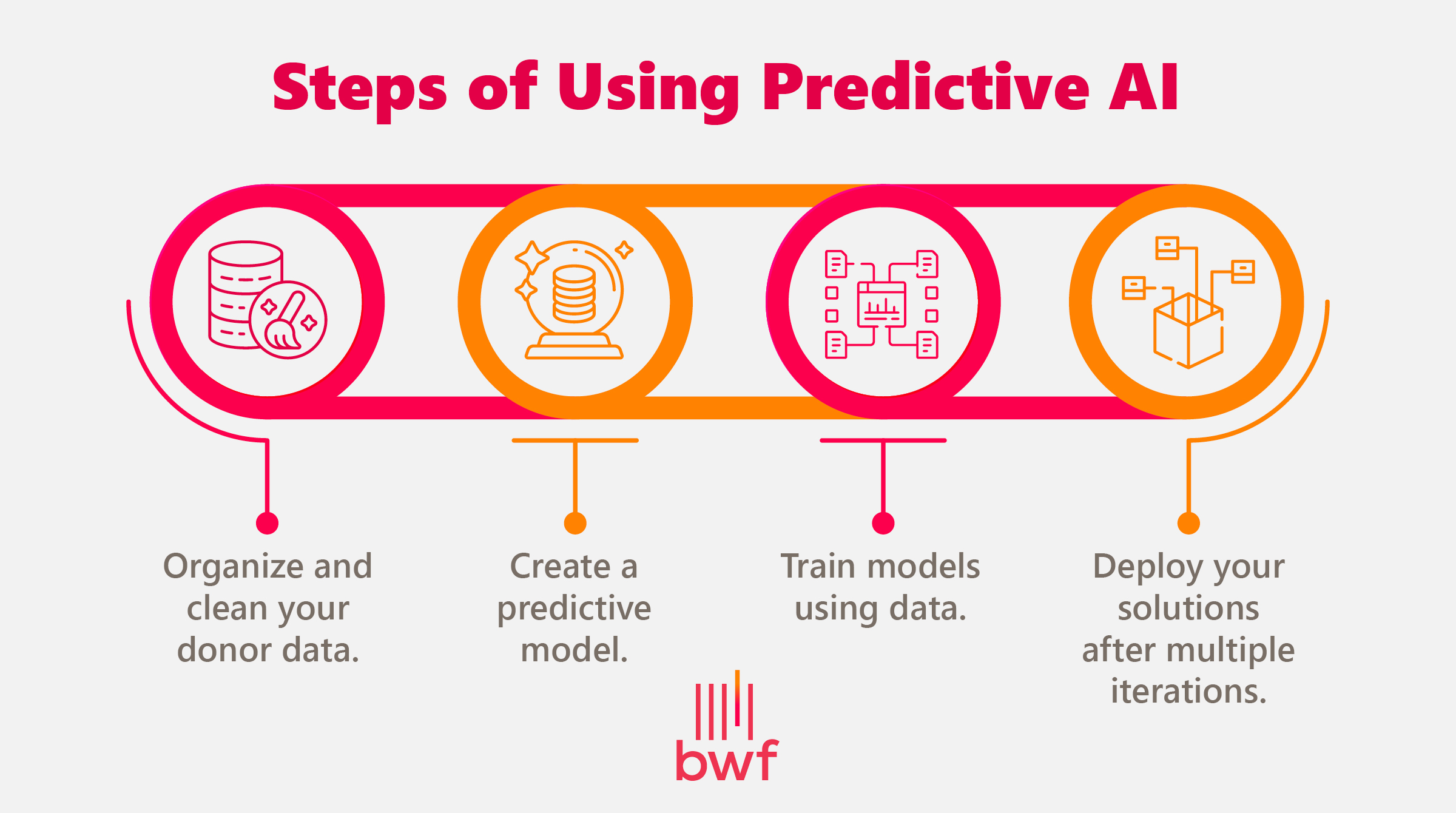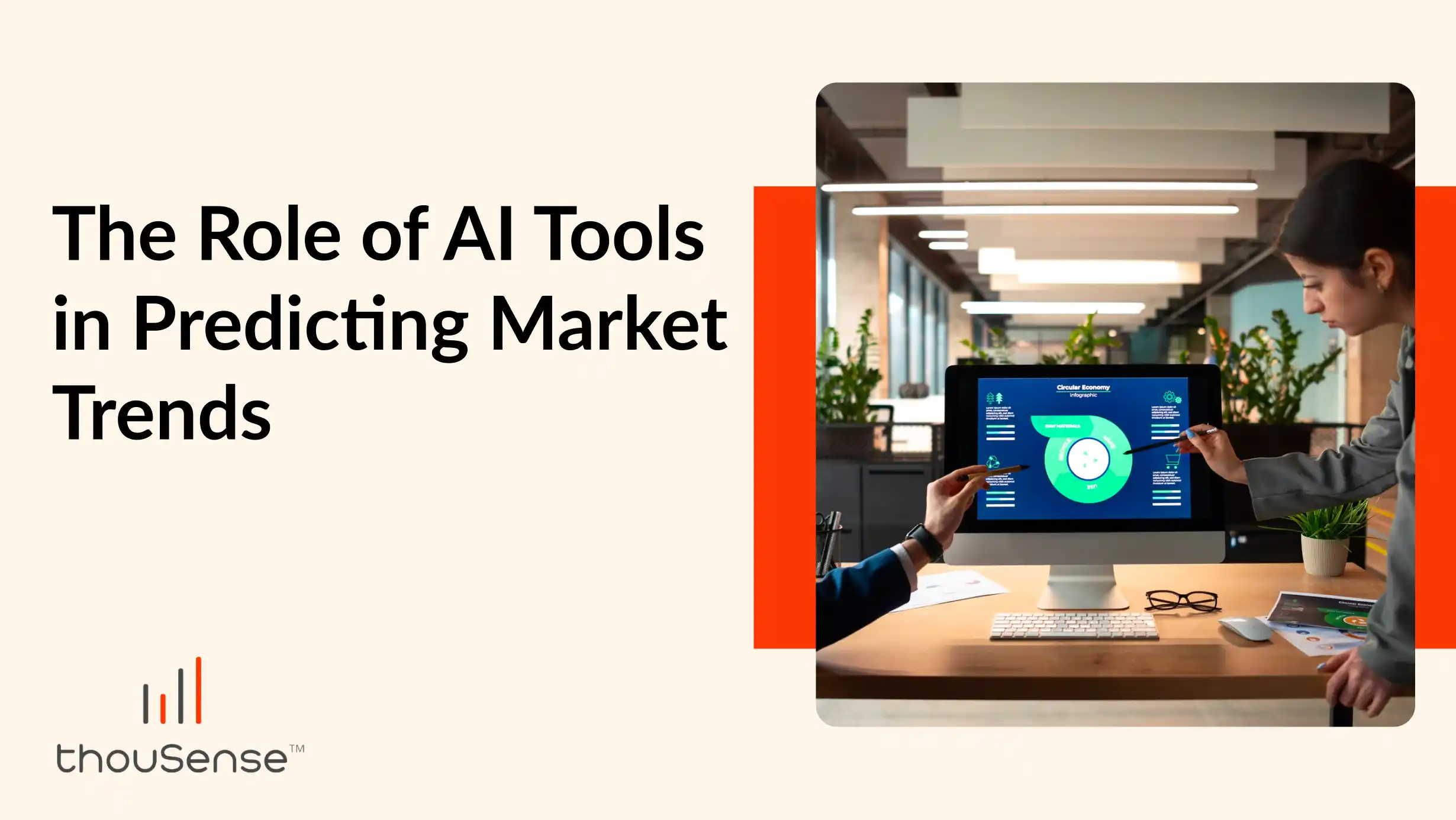Delve into the realm of predictive market analytics with the transformative power of AI. This captivating introduction sets the stage for a deep dive into how AI is reshaping market analysis, offering a blend of innovation and practicality to our understanding of market trends.
Explore the intricate web of AI's impact on predictive market analytics, uncovering the hidden gems of data-driven insights and trend forecasting.
Role of AI in Predictive Market Analytics

Artificial Intelligence (AI) is transforming the landscape of predictive market analytics by leveraging advanced algorithms and machine learning capabilities to analyze vast amounts of data and identify patterns that humans may overlook. AI algorithms can process data at incredible speeds and make accurate predictions based on historical data, market trends, and other relevant factors.
Benefits of using AI in predicting market trends:
- Enhanced Accuracy: AI can analyze large datasets quickly and accurately, leading to more precise predictions of market trends.
- Real-time Insights: AI-powered tools can provide real-time insights into market changes, enabling businesses to make timely decisions.
- Improved Efficiency: AI automates the process of analyzing data, freeing up time for analysts to focus on strategic tasks.
Examples of AI applications in market analysis:
- Sentiment Analysis:AI algorithms can analyze social media posts, news articles, and other sources to gauge public sentiment towards a product or company, providing valuable insights for market analysis.
- Price Forecasting:AI models can analyze historical pricing data and market trends to predict future price movements, helping traders and investors make informed decisions.
- Customer Segmentation:AI can segment customers based on their behavior, preferences, and demographics, allowing businesses to tailor their marketing strategies and offerings to specific target groups.
Machine Learning Algorithms in Market Prediction

Machine learning algorithms play a crucial role in predictive analytics by analyzing historical data, identifying patterns, and making predictions based on those patterns. These algorithms can process vast amounts of data quickly and efficiently, enabling businesses to make informed decisions and anticipate market trends.
Comparison of Machine Learning Algorithms
- Linear Regression: This algorithm is commonly used for predicting numerical values based on historical data. It establishes a linear relationship between the input variables and the output, making it suitable for forecasting trends.
- Random Forest: Random Forest is an ensemble learning technique that uses multiple decision trees to make predictions. It is effective in handling large datasets and reducing overfitting.
- Support Vector Machines (SVM): SVM is used for classification tasks in market prediction. It works by finding the hyperplane that best separates different classes, making it useful for identifying market trends.
How Machine Learning Improves Forecast Accuracy
Machine learning algorithms enhance the accuracy of market forecasts by:
- Identifying complex patterns: Machine learning algorithms can detect intricate patterns in data that may not be apparent to human analysts, leading to more accurate predictions.
- Adapting to changing market conditions: These algorithms can adapt to evolving market conditions and adjust predictions accordingly, providing real-time insights to businesses.
- Reducing human bias: By relying on data-driven analysis, machine learning algorithms minimize human bias in decision-making, resulting in more objective and reliable forecasts.
Data Processing and Analysis with AI
AI plays a crucial role in processing and analyzing large volumes of market data, allowing for more accurate and timely predictions. The importance of data quality cannot be overstated when it comes to predictive analytics using AI, as the accuracy of the insights generated heavily relies on the quality of the data input.
AI tools are also capable of handling unstructured data, which is common in the market, enabling better predictions and decision-making.
Handling Large Volumes of Data
AI algorithms are designed to efficiently process and analyze massive amounts of data in real-time, allowing for quick identification of patterns and trends
Importance of Data Quality
Data quality is paramount in predictive analytics, as inaccurate or incomplete data can lead to faulty predictions and unreliable insights. AI tools can help in ensuring data quality by identifying and correcting errors, eliminating duplicates, and enhancing data integrity, resulting in more trustworthy predictions and recommendations.
Handling Unstructured Data
Unstructured data, such as social media posts, images, and text documents, can hold valuable insights for market predictions. AI tools equipped with natural language processing and image recognition capabilities can extract meaningful information from unstructured data sources, enriching the analysis and providing a more comprehensive view of the market dynamics.
Challenges and Limitations of AI in Market Analysis
Implementing AI in predictive market analytics comes with its own set of challenges and limitations that need to be addressed for accurate results. Let's delve into some of the key issues faced in this domain.
Challenges Faced in Implementing AI in Market Analysis
- Lack of Quality Data: AI heavily relies on data quality and quantity for accurate predictions. Inadequate or biased data can lead to skewed results and wrong predictions.
- Complexity of Market Dynamics: Markets are influenced by multiple variables and factors that are constantly changing. AI algorithms may struggle to adapt to these dynamic environments.
- Interpretability and Transparency: AI models often operate as "black boxes," making it difficult for analysts to understand the reasoning behind the predictions. Lack of transparency can lead to mistrust in the results.
Limitations of AI Technology in Predicting Market Outcomes
- Overfitting: AI models can sometimes overfit the training data, leading to poor generalization and inaccurate predictions on new data.
- Unforeseen Events: AI algorithms may not be equipped to handle unexpected events or outliers in the market, resulting in inaccurate forecasts during turbulent times.
- Ethical Concerns: AI predictions can have ethical implications, especially when influencing market decisions that impact individuals and society at large.
Strategies to Overcome Potential Pitfalls in AI-Driven Market Analysis
- Data Quality Assurance: Ensuring data integrity and quality through proper validation and cleansing processes can enhance the reliability of AI predictions.
- Continuous Model Monitoring: Regularly monitoring AI models for performance and recalibrating them based on changing market conditions can improve accuracy.
- Interdisciplinary Collaboration: Engaging experts from various domains like finance, economics, and technology can provide valuable insights and enhance the interpretability of AI results.
End of Discussion

In conclusion, the evolving landscape of market analysis intertwines seamlessly with the advancements in AI technology. From overcoming challenges to unlocking new possibilities, the future of predictive market analytics is indeed bright with the integration of AI at its core.
Quick FAQs
How is AI transforming predictive market analytics?
AI revolutionizes predictive market analytics by leveraging advanced algorithms to process vast amounts of data and generate accurate forecasts.
What are the challenges faced when implementing AI in market analysis?
Challenges include data quality issues, integrating AI tools with existing systems, and ensuring ethical use of AI in decision-making processes.
Can AI handle unstructured data for market predictions?
Yes, AI tools are adept at processing unstructured data, providing valuable insights for predicting market trends and outcomes.
